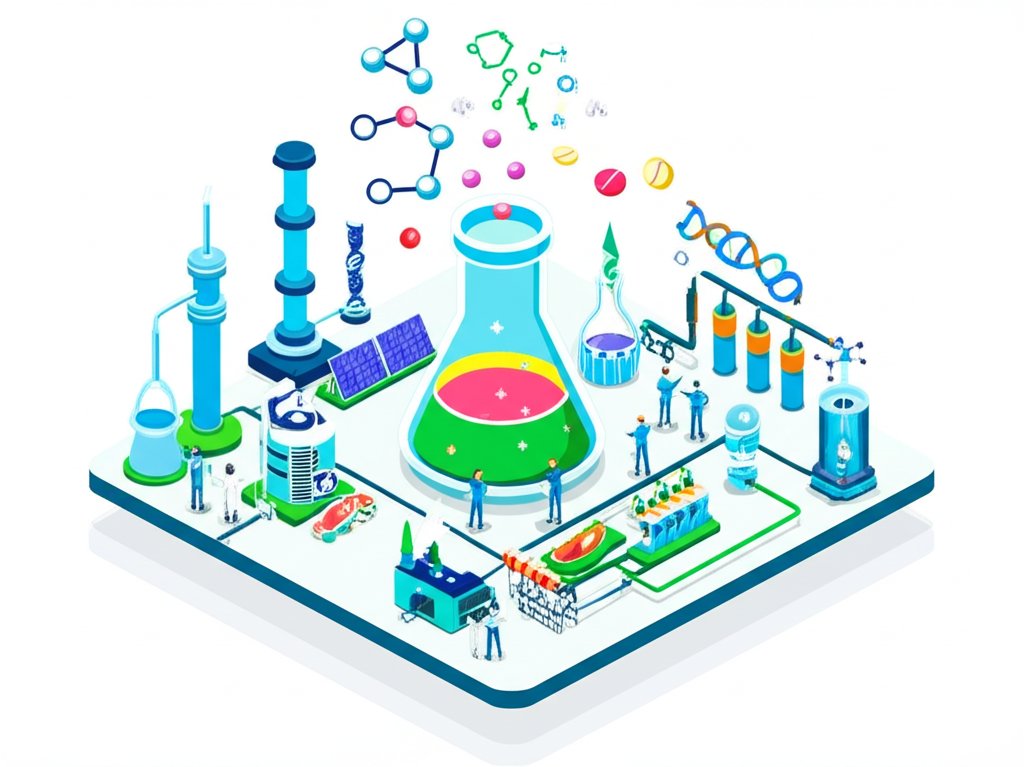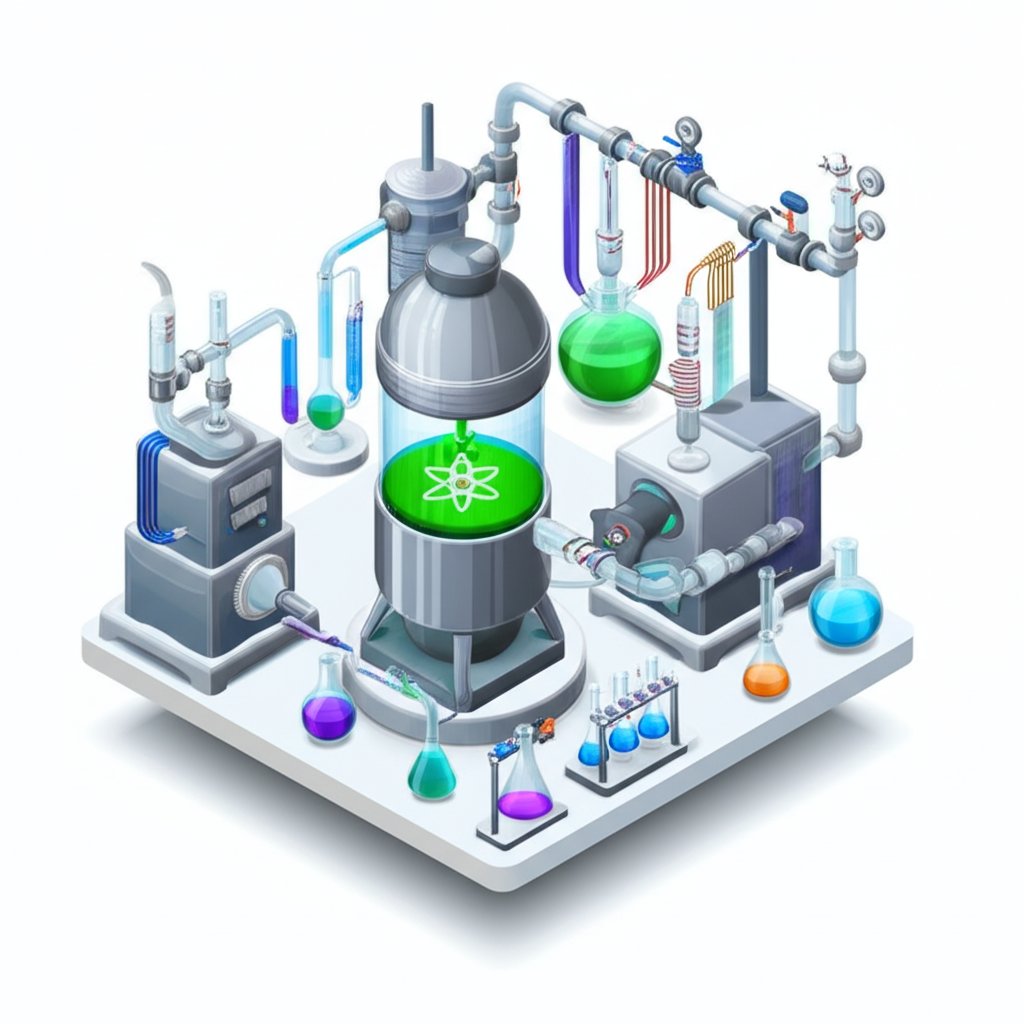Have you ever stopped to consider the intricate processes behind the products that shape your daily life? From the fuel in your car to the medicine in your cabinet, or even the delicious yogurt in your fridge, a hidden force is at work. That force is chemical engineering – a discipline often misunderstood, yet profoundly impactful. If you’re curious about the fascinating world of material transformation and process innovation, get ready to discover some truly mind-blowing chemical engineering facts. This article delves into the realm of chemical engineering to uncover a trove of insights, revealing the crucial role these engineers play in virtually every industry. Prepare to be amazed as we explore these interesting facts about chemical engineering that unveil the secrets beneath its surface.
Unraveling the Discipline: Core Chemical Engineering Facts You Need to Know

Chemical engineering is far more than just “applied chemistry.” It’s a foundational discipline that bridges scientific discovery with real-world application, translating molecular understanding into large-scale industrial processes. To truly appreciate its scope, let’s start with some fundamental chemical engineering facts.
Chemical engineers are key to scaling up production, a concept also found in the fast-paced world of tech, as demonstrated by these interesting facts about technology.
Chemistry vs. Chemical Engineering: A Crucial Distinction
One of the most common misconceptions is confusing chemistry with chemical engineering. While both fields are intrinsically linked, their fundamental approaches differ significantly.
The Multidisciplinary Maestro: Blending Science and Math
An intriguing fact about chemical engineering is its inherently multidisciplinary nature. Chemical engineers don’t just rely on chemistry; their toolkit is vast, incorporating principles from:
This broad scientific and technical mastery is why chemical engineers are often considered “universal engineers.”
George E. Davis: The Father of Modern Chemical Engineering
Did you know that modern chemical engineering has a recognized founder? George E. Davis, an English engineer, is widely regarded as the creator of the discipline as we know it today. In the late 19th century, Davis delivered a groundbreaking series of 12 lectures at the Manchester Technical School, which were later compiled into the “Handbook of Chemical Engineering” (1901). His work laid the theoretical and practical foundations for the principles and practices that still guide chemical engineers today, emphasizing the systematic study of industrial chemical processes. This is one of the foundational chemical engineering facts that shaped the field.
Driving Innovation: Interesting Facts About Chemical Engineering’s Impact
Chemical engineers are the unsung heroes behind countless innovations that have shaped and continue to shape our modern world. Their work is integrated into almost every facet of contemporary life.
From Everyday Essentials to Advanced Technologies
Many of the products we take for granted owe their existence, safety, and affordability to chemical engineers. Here are some interesting facts about chemical engineering that highlight their pervasive influence:
Chemical engineers play a pivotal role in ensuring the safety, quality, and consistent development of these countless products.
Powering Progress: Energy, Environment, and Sustainability
Considering the global challenges of climate change and resource scarcity, chemical engineers are more crucial than ever. Many chemical engineering interesting facts relate to their contributions to sustainable development and environmental protection:
Their expertise ensures that industrial progress is balanced with ecological responsibility.
Safeguarding Health: The Role in Medicine and Biotechnology
The field of medicine, particularly biotechnology, relies heavily on chemical engineering. These chemical engineering facts demonstrate their critical role in health:
The precision and scalability that chemical engineers bring to these fields are indispensable for global health.
The “Universal Engineer”: More Fascinating Chemical Engineering Facts
Chemical engineers possess a unique blend of skills that make them exceptionally versatile, often leading to surprising career paths and a distinct reputation within the engineering landscape.
Beyond the Lab: Diverse Career Paths and Industries
One of the most fascinating chemical engineering facts is the sheer breadth of industries and roles open to them. Unlike some specialized engineering fields, chemical engineers aren’t limited to specific sectors. Their analytical, problem-solving, and process-oriented minds are highly valued in:
This versatility makes chemical engineering an incredibly dynamic and future-proof career choice.
Process Control Pioneers: Ensuring Quality and Efficiency
A core responsibility of chemical engineers is process control, which involves minimizing variability and disruptions in industrial processes to ensure consistent product quality, safety, and maximum efficiency. These chemical engineering facts highlight their role here:
Effectively, they are the maestros conducting complex industrial symphonies, ensuring every instrument plays in harmony.
The “Mother” of All Engineering: A Holistic Approach
Chemical engineering is often affectionately referred to as the “mother” of all branches of engineering. This isn’t just a quirky nickname; it’s a testament to its comprehensive nature. This interesting fact about chemical engineering stems from its unique ability to integrate and apply elements from various other engineering disciplines:
By combining scientific principles with a holistic engineering approach, chemical engineers are equipped to solve complex, interdisciplinary problems, making them indispensable in today’s increasingly integrated industrial world.
Looking Ahead: Future-Facing Chemical Engineering Interesting Facts

As technology advances and global challenges intensify, the role of chemical engineers continues to evolve, making them central to shaping the future. Here are some forward-looking chemical engineering interesting facts.
The Digital Frontier: AI, CAD, and Simulation
The integration of advanced computing technologies is transforming chemical engineering.
Solving Global Grand Challenges: Climate Change and Resource Scarcity
The future demands innovative solutions to critical global issues, and chemical engineers are poised to deliver.
Their work is essential for securing a sustainable and prosperous future for humanity.
Unexpected Contributions: From Finance to Food Science
The analytical rigor instilled in chemical engineering training makes graduates highly adaptable. It’s a testament to their fundamental training that they are found in seemingly unrelated sectors.
These 10 interesting facts about chemical engineering (and more!) underscore the dynamic, diverse, and deeply impactful nature of this critical discipline.
Conclusion
From the microscopic world of molecular transformations to the macroscopic scale of industrial production, chemical engineers are the architects of our modern material world. We’ve explored some truly mind-blowing chemical engineering facts, revealing their pivotal role in everything from the safety of our food and medicine to the quest for sustainable energy and a cleaner environment. Their unique blend of scientific understanding and engineering innovation positions them at the heart of solving humanity’s most pressing challenges.
The next time you enjoy a product, flick a light switch, or benefit from a medical advancement, remember the silent, crucial contributions of chemical engineers. Their ingenuity and dedication continue to shape a safer, healthier, and more technologically advanced future for us all. The field of chemical engineering isn’t just about chemicals; it’s about transforming possibilities into reality, one process at a time. Embrace the marvel of this discipline and perhaps consider the boundless opportunities it offers!
FAQ Section
Q1: Who is considered the founder of modern chemical engineering?
A1: George E. Davis, an English engineer, is widely regarded as the founder of modern chemical engineering due to his pioneering lectures and “Handbook of Chemical Engineering” in the late 19th and early 20th centuries.
Q2: What is the main difference between chemistry and chemical engineering?
A2: While chemistry focuses on understanding substances at a molecular level in a lab, chemical engineering applies those chemical principles to design, develop, and optimize large-scale industrial processes to produce useful products efficiently and safely.
Q3: What industries benefit most from chemical engineers?
A3: Chemical engineers are vital in a vast array of industries, including pharmaceuticals, food and beverage, oil and gas, plastics and materials, biotechnology, environmental management, energy production, consumer goods, and even electronics. Their versatility makes their skills highly transferable.
Q4: How do chemical engineers contribute to sustainability and environmental protection?
A4: Chemical engineers are at the forefront of sustainability by developing renewable energy technologies, designing processes that minimize waste and energy consumption, implementing pollution control systems, and researching carbon capture and utilization methods to combat climate change.
Q5: Are chemical engineers solely focused on chemicals and laboratories?
A5: No, this is a common misconception. While understanding chemicals is fundamental, chemical engineers work across diverse sectors and often in roles far beyond traditional labs, including plant operations, research and development, process design, project management, and even non-traditional fields like finance or consulting due to their strong analytical skills.
Q6: Why is chemical engineering often called the “mother” of all branches of engineering?
A6: Chemical engineering is called the “mother” of all branches because it uniquely integrates and applies principles from various other engineering disciplines, such as mechanical, electrical, civil, and computer engineering, to solve complex, real-world problems. This holistic approach makes it a unifying field.










